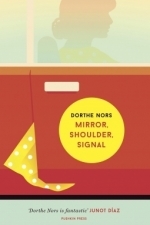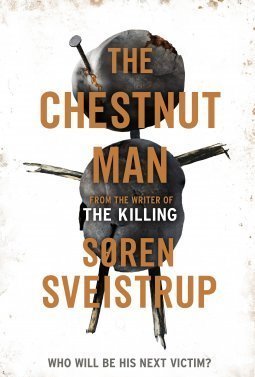
Progress to 100
Games and Entertainment
App
Interact with your iPhone or iPad in ways that you never thought possible! Get ready to be puzzled...

FlyMaps | 3D Maps + Wikipedia
Navigation and Travel
App
FlyMaps uses 3D maps to visit cities around the world. Including more than 200 cities and places....

Corporate Sustainability, Social Responsibility and Environmental Management: An Introduction to Theory and Practice with Case Studies
Book
This book provides a concise and authoritative guide to corporate social responsibility (CSR) and...
Hazel (1853 KP) rated Mirror, Shoulder, Signal in Books
Aug 7, 2017
Shortlisted for The Man Booker International Prize 2017, Mirror, Shoulder, Signal is a piece of Danish literature by Dorthe Nors, translated into English by Misha Hoekstra. It has a tragicomic nature, introducing the 40-year-old Sonja, a woman who is trying but failing to move in the right direction.
Sonja is the type of character full of flaws that readers will recognise in themselves. Although she has successfully become self-employed, translating crime novels from Swedish into Danish, Sonja feels she has not accomplished anything in life. Despite one unlucky attempt at love, Sonja has remained single, moving to Copenhagen in an attempt to find herself. Determined to earn her driving licence Sonja braves the lessons in the busy city, however, she cannot handle gear changes. In other areas of her life, she tries weekly massage therapy and attempts a meditation exercise. Unfortunately, Sonja remains apathetic to the whole scenario and would rather be somewhere warm eating cake.
Mirror, Shoulder, Signal is a cleverly crafted title that makes repeat appearances throughout the narrative. The three words are instructions that Sonja repeats as a mantra each time she pulls away from the curb in her instructor’s car. The majority of the book takes place during these lessons, or, if not there, face down on Ellen’s massage table.
Sonja’s narration constantly varies between the present and memories from her childhood. A particular focus is the recollection of events involving her sister Kate. They may not have been close when they were young, but now it is almost impossible for Sonja to contact her sister. It is as though Sonja has been alienated from her own family.
Embellished with sexual innuendos, poor attempts at humour fail to bring any excitement to the story. There is no clear plot. At the beginning, readers may wonder if she will earn her driver’s licence – she does not – find love – she does not – find herself – she does not. What, then, was the point of this novel? Apart from a suggestion of future happiness in the final chapter of the book, there is no sense of resolution.
The issue with some translated stories is the loss of original intent and meanings. This does not seem to have been much of a problem in this instance; however, the translator has not been entirely successful in converting the Danish into a naturally flowing English.
Overall, Mirror, Shoulder, Signal is a bit of a disappointment, especially because it has been shortlisted for such a prestigious prize. Since the prize is meant to be awarding the author for continued creativity and contribution to fiction, it makes you wonder what critics saw in this novel to believe it stood a chance at earning the honour.
Hazel (1853 KP) rated Mirror, Shoulder, Signal in Books
Dec 7, 2018
Shortlisted for The Man Booker International Prize 2017, <i>Mirror, Shoulder, Signal</i> is a piece of Danish literature by Dorthe Nors, translated into English by Misha Hoekstra. It has a tragicomic nature, introducing the 40-year-old Sonja, a woman who is trying but failing to move in the right direction.
Sonja is the type of character full of flaws that readers will recognise in themselves. Although she has successfully become self-employed, translating crime novels from Swedish into Danish, Sonja feels she has not accomplished anything in life. Despite one unlucky attempt at love, Sonja has remained single, moving to Copenhagen in an attempt to find herself. Determined to earn her driving licence Sonja braves the lessons in the busy city, however, she cannot handle gear changes. In other areas of her life, she tries weekly massage therapy and attempts a meditation exercise. Unfortunately, Sonja remains apathetic to the whole scenario and would rather be somewhere warm eating cake.
<i>Mirror, Shoulder, Signal</i> is a cleverly crafted title that makes repeat appearances throughout the narrative. The three words are instructions that Sonja repeats as a mantra each time she pulls away from the curb in her instructor’s car. The majority of the book takes place during these lessons, or, if not there, face down on Ellen’s massage table.
Sonja’s narration constantly varies between the present and memories from her childhood. A particular focus is the recollection of events involving her sister Kate. They may not have been close when they were young, but now it is almost impossible for Sonja to contact her sister. It is as though Sonja has been alienated from her own family.
Embellished with sexual innuendos, poor attempts at humour fail to bring any excitement to the story. There is no clear plot. At the beginning, readers may wonder if she will earn her driver’s licence – she does not – find love – she does not – find herself – she does not. What, then, was the point of this novel? Apart from a suggestion of future happiness in the final chapter of the book, there is no sense of resolution.
The issue with some translated stories is the loss of original intent and meanings. This does not seem to have been much of a problem in this instance; however, the translator has not been entirely successful in converting the Danish into a naturally flowing English.
Overall, <i>Mirror, Shoulder, Signal</i> is a bit of a disappointment, especially because it has been shortlisted for such a prestigious prize. Since the prize is meant to be awarding the author for continued creativity and contribution to fiction, it makes you wonder what critics saw in this novel to believe it stood a chance at earning the honour.

The Best Things in Life are Free
Book
Lonely Planet's The Best Things in Life are Free is packed full of money-saving tips, tricks and...

50 Bars to Blow Your Mind
Lonely Planet and Ben Handicott
Book
From the people who have been delivering trustworthy guidebooks to every destination in the world...
BookInspector (124 KP) rated The Chestnut Man in Books
Sep 24, 2020
The first thing that I really loved, was the cover. It looks quite simple, but the way that the chestnut man is portrayed gave me the feeling that it is going to be a great thriller, and it definitely didn’t disappoint me. I think, that in this book there are multiple protagonists- Thulin and Hess. They both play quite equal roles during the investigation, even though it might not feel so. There is a wide variety of characters in this novel, and all of them are very well nurtured and thought through. Their qualities are delivered slowly, and I loved how they opened up throughout the book. I really liked Thulin and Hess, they both are very complex individuals. They are quite different people, and when they work together, all the process feels messy, chaotic, but in the end, it provides results.
I don’t even know from where to begin with the praise for the plot. The whole narrative has multiple layers, and there are several cases combined in this book. We have the disappearance of a Minister’s daughter, which happened a while ago and shook the whole country, and at present, we have these new murders with the chestnut dolls at the crime scenes. These two things entwined with each other created more richness and action for the whole story. I loved that it was told from multiple perspectives, it not only allowed to get to know the characters better but also gave an insight into different minds. The author chose very intriguing topics for this novel, such as foster care; child abuse; social services and their work; politicians and their lives; different family relationships; discrimination at work and many more.
The writing style of this book is impeccable! Sveistrup is a very talented storyteller with a great eye for detail, and after reading this book, I am definitely his fan. I really loved the setting of this novel, it is set mainly in Copenhagen, during the autumn/winter season, which created a very gloomy and mysterious atmosphere to the whole novel. The author is not afraid to show disturbing (to some) killings with amputations or disgusting acts of humankind, so this book is not suitable for sensitive people. It might feel like a big book, but the chapters are really short and the whole plot and characters really absorbed me so, I just couldn’t put it down. I really liked the ending of this thriller, it is unexpected, unusual, but rounded this novel very beautifully!
So, to conclude, this book has everything what a great thriller needs. The characters are complex and intriguing, the mood, suspense and twists are very well developed, it is dark and can be disgusting at times, but overall it is a gripping novel and I can’t wait to read more from this author! I do strongly recommend it, and I hope you will enjoy it as much as I did.

VoiceMap: GPS Audio Tours with Offline Maps
Travel and Entertainment
App
Experience the magic of GPS audio walks, cycles, drives and even boat rides with VoiceMap tours in...


